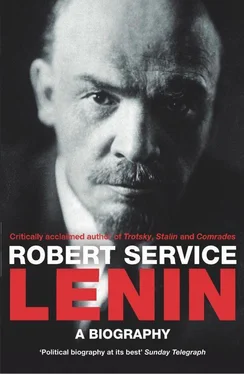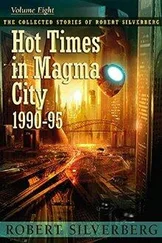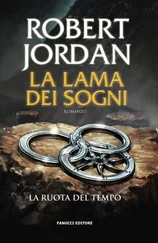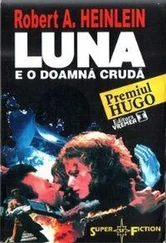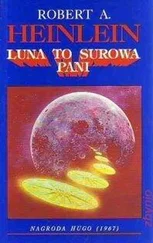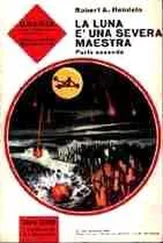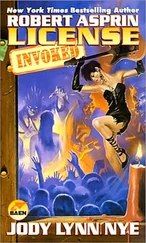Starkov, Vasili V., 1
Starokonstantinov, 1
Stasova, Yelena, 1, 2
state, the: disappearance under communism, 1; and terror, 2, 3, 4; monopolies, 5; one-party, 6, 7, 8, 9, 10, 11, 12, 13
‘state capitalism’, 1
State Planning Commission, 1
Stockholm: 4th Party Congress in, 1, 2; L meets mother in, 3, 4; L passes through on 1917 return to Russia, 5
Stolypin, Pëtr: reforms, 1; 1907 constitutional coup, 2
Stowe, Harriet Beecher: Uncle Tom’s Cabin , 1, 2, 3
Strumpel, Professor A., 1, 2
Struve, Pëtr: in St Petersburg, 1, 2, 3, 4; on L’s writing, 5; manifesto for Russian Democratic-Labour Party, 6; founds Union of Liberation, 7, 8; helps L found Iskra , 9; Plekhanov refutes, 10; Critical Remarks on the Question of Russian Economic Development , 11, 12
Strzhalkovski, V.M., 1
Stupishin (Nicholas II’s servant), 1s
Sukhanov, Nikolai, 1, 2, 3; Notes on the Revolution , 4
Suliashvili, David, 1
Sulimova, Maria L., 1
Suny, Ronald, 1
Supreme Council of the National Economy, 1, 2
Sverdlov, Yakov: arrested, 1; runs L’s Secretariat, 2, 3; briefs L on return to Petrograd, 4; and Constitutional Assembly elections, 5, 6; supports L on revolutionary political consolidation, 7; chairs Congress of Soviets Presidium, 8; promotes Party in provinces, 9; reports on German ultimatum, 10; in Moscow, 11; administrative duties, 12, 13; death, 14; criticised, 15
Sviyazhk, battle of (1918), 1
Swann, Rev. F.R., 1
Switzerland: L first visits (1895), 1; L revisits (1900), 2, 3; L revisits (1903), 4; L and Krupskaya holiday in, 5, 6; L stays in (1907), 7; L and Krupskaya take refuge in during First World War, 8, 9; L leaves for Russia after revolution, 10
Syzran, 1
Takhtarëv, K.M., 1, 2
Tambov province, 1, 2, 3
Tampere (Finland), 1
Taratuta, Viktor, 1, 2
Taylor, Frederick Winslow, 1
Tchaikovsky see Chaikovski terror: L on state and, 1, 2, 3, 4, 5, 6, 7, 8, 9, 10, 11; Trotski advocates, 12, 13; see also Great Terror
Theen, Rolf, 1
Thiers, Adolphe, 1
Tikhomirnov, Viktor A., 1
Tkachëv, Pëtr, 1, 2, 3, 4, 5, 6
Tolstoi, Count Lev, 1, 2, 3, 4, 5, 6, 7; War and Peace , 8
Tomski, Mikhail, 1, 2, 3, 4, 5
‘trade union discussion’, 1, 2, 3
Trans-Siberian Railway: completed, 1
Transcaucasian Soviet Federation, 1, 2
Trepov, Fëdor, 1, 2
Trianon Treaty (1920), 1
Trotski, Lev: on political techniques, 1; visits L in London, 2; Jewishness, 3; advocates worker government, 4; in revolutionary St Petersburg (1905), 5; speech-making, 6; produces Pravda , 7; organises rival party conference (Vienna), 8; on small numbers of international socialists, 9; influenced by Helphand-Parvus, 10; joins Bolsheviks, 11; arrested and imprisoned, 12; released, 13; threatens opponents of Bolshevism with guillotine, 14; and plans for October Revolution, 15; in October Revolution, 16; announces overthrow of Kerenski, 17; L consults over draft of decrees, 18; appointed Commissar for External Affairs, 19, 20; refuses compromise with other socialist parties, 21; concern for general policy, 22; negotiates at Brest-Litovsk for separate 1918 peace, 23, 24, 25, 26, 27; occupies apartment in Petrograd, 28; hostility to Constituent Assembly, 29; at 7th Party Congress, 30; in Moscow, 31; as Commissar of Military Affairs, 32; attempts to disarm Czech Legion, 33; leads Red Army in Civil War, 34, 35, 36, 37, 38; disputes with Stalin, 39, 40, 41; and L’s leadership, 42; terrorist acts, 43; at First Comintern Congress, 44; criticised for Red Army organisation, 45; image and acclaim, 46; disputes with L on economic policy, 47, 48, 49, 50; proposes militarisation of labour, 51, 52; in war against Poland, 53, 54, 55; opposes invading Poland, 56; advocates NEP, 57; proposes banning strikes and controlling trade unions, 58, 59; incurs rancour of party, 60; suppresses Kronstadt naval mutiny, 61; overwork and strain, 62, 63; L forbids from travelling to Genoa conference, 64; L proposes excluding from Central Committee, 65; character and manner, 66; supports foreign trade monopoly, 67; L’s alliance with, 68, 69, 70; in L’s political testament, 71, 72; L requests to represent Georgian case, 73; predicts colonial troubles, 74; at 12th Party Congress, 75; criticises party’s weaknesses, 76; rests at Sukhumi, 77; and L’s death, 78; memorialises L, 79; denigrated after L’s death, 80; writes on L, 81; The New Course , 82
Trotskyists: and introduction of NEP, 1
Tsereteli, Irakli, 1, 2
Tsushima, Battle of (1905), 1
Tsyurupa, A.D., 1, 2
Tugan-Baranovski, Mikhail: in St Petersburg, 1, 2, 3, 4; The Russian Factory , 5
Tukhachevski, General Mikhail, 1, 2
Tula, 1
Turgenev, Ivan, 1, 2, 3, 4, 5, 6
Turkey (Ottoman Empire): war with Russia (1877–8), 1, 2; in First World War, 3; Soviet deal with (1921), 4
Turukhansk (Siberia), 1
Udelnaya, 1
Ufa, 1, 2, 3
Ukhta forced-labour camp, 1
Ukraine: in Russian Empire, 1; regional autonomy campaign, 2; nationalism in, 3, 4; in German peace terms, 5, 6; established as Soviet republic, 7, 8; Piłsudski invades, 9; Stalin wishes to incorporate into RSFSR, 10, 11; peasant uprisings, 12, 13; famine, 14
Ulam, Adam, 1
Ultimatumists, 1, 2
Ulyanov family, 1, 2, 3, 4, 5, 6, 7, 8, 9, 10
Ulyanov, Alexander Ilich (L’s elder brother; Sasha): hanged, 1, 2, 3, 4, 5, 6, 7, 8, 9; birth, 10; childhood, 11, 12, 13; schooling, 14; model soldiers and battles, 15; L admires, 16; studies at St Petersburg University, 17, 18; and father’s death, 19, 20; criticises L for misbehaviour, 21; revolutionary activities, 22, 23, 24, 25, 26, 27; arrested and tried, 28, 29; moral values, 30; health problems, 31; diligence in studies, 32
Ulyanova, Alexandra or Anna (L’s grandmother), 1, 2
Ulyanova, Anna Ilinichna (L’s elder sister; Anyuta): on non-Russian ancestry, 1, 2; birth, 3; visits grandmother, 4; memoirs and writings on L, 5, 6, 7; relations with siblings, 8; marriage, 9; education and upbringing, 10, 11; and L’s schooling, 12; piano-playing, 13; teacher training, 14, 15, 16, 17; travels with father, 18; and father’s illness and death, 19; and brother Alexander’s arrest and execution, 20, 21; financial position, 22; and L’s expulsion from university, 23; marriage to Yelizarov, 24; helps L, 25; temper, 26; helps famine victims, 27, 28; lives in Moscow, 29; deference to Struve, 30; terrorist sympathies, 31; health problems, 32; and L’s arrest, 33; and L’s exile in Siberia, 34; nervous tension, 35; on L’s rejecting Krupskaya, 36; on L’s relations with women, 37; resents and criticises Krupskaya, 38, 39; and L’s wedding, 40; negotiates for publication of L’s works, 41; sends books to L in exile, 42; on family’s Jewish ancestry, 43; Brittany holiday with L, 44; political activities, 45; L visits at Sablino (1905), 46; criticises L’s Materialism and Empiriocriticism , 47; L writes to on Party factions, 48; adopts and raises Georgi Lozgachëv, 49, 50; arrested and imprisoned, 51; on L’s intemperance, 52; works for Russian Bureau of Central Committee, 53, 54; arranges publication of L’s Imperialism , 55; questions L’s political judgement, 56; L stays with on 1917 return to Petrograd, 57; devotion to L, 58; as editorial secretary of Pravda , 59; apartment searched, 60; visits L in Petrograd flat, 61; grief at husband’s death, 62; death, 63; and L’s death amd funeral, 64; improved relations with Krupskaya, 65; and posthumous L cult, 66
Ulyanova, Antonina (Dmitri’s wife), 1, 2
Ulyanov, Dmitri Ilich (L’s younger brother; Mitya): birth, 1; childhood, 2, 3, 4, 5, 6; marriage, 7; and L’s toy soldiers, 8; and father’s death, 9; medical practice, 10, 11, 12; financial position, 13; education, 14, 15, 16; in Kazan, 17; helps L, 18; terrorist sympathies, 19; teaches L to ride bicycle, 20; L buys medical book for, 21; on L in prison, 22; and L’s exile in Siberia, 23; expelled from university and banished, 24; gives sporting gun to L, 25; attends Second Party Congress, 26; political activism, 27;marriage breakdown, 28; separation from L, 29; reunited with L (1919), 30; on L’s medical condition, 31, 32; death from stenocardia, 33; and L’s death and funeral, 34
Читать дальше
